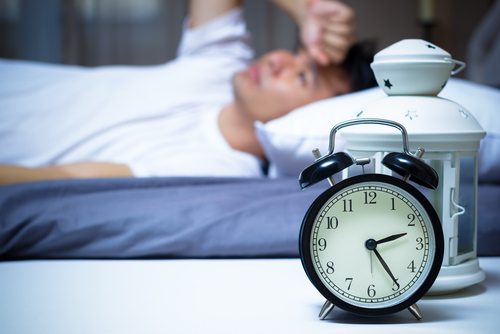No products in the cart.
Simple Meds Online
Sleep Disorders
Sleep Disorders
Sleep Disorders like insomnia and sleep apnea affect many aspects of your day-to-day life. Everyone understands the importance of sleep to function correctly in our routine life. Lack of sleep messes up with the entire schedule and causes mild to severe health complications.
To counter these sleep disorders doctors, recommend the consumption of sleeping tablets like stilnoct. Such sleeping tablets help in inducing sleep and giving your body and mind a much-required sleep.
What are sleep disorders?
Sleep disorders are those conditions that hinder your sleep or prevent you from getting the required sleep, thus resulting in daytime sleepiness or other symptoms. Everyone experiences trouble sleeping from time to time, but it does not mean that a person suffers from any sleep disorder. If the sleeping problem continues for more than a week or two, then you should consult a doctor.
If you experience the problems mentioned below timely, then you should see a doctor.
- Constantly facing difficulty in sleeping.
- Often feel tired during the day even though you get plenty of sleep at night.
- Unable to perform regular daytime activities
stilnoct is one of the medicines that help induce sleep, but one should not take medicine without the doctor’s prescription.
What happens when someone doesn’t get enough sleep?
Our body and mind need time to rest to work properly. Not getting enough sleep or quality sleep leads to more than just feeling tired and restless. Sleepiness interferes with cognitive function that leads to learning disabilities, memory impairment in people of all ages, depression, and personality change in many people. Medicine like stilnoct helps in achieving quality sleep within an adequate amount of time.
Most of the people who are sleep deprived experience difficulty to making decisions, irritability, have problems with performance, work-related accidents, and have problems with performance.
Symptoms and causes of sleep disorder
Causes of sleep disorders
Many factors cause sleep problems. Although the causes of sleep disorders might differ, the result of every sleep disorder is that the body’s natural cycle of sleeping and waking up is disrupted or exaggerated.
- Physical causes like injury, ulcers
- Medical causes like asthma
- Depression
- Anxiety disorder
- Regular drinking and smoking
- Working late at night
- Already on some medications
Try to avoid the consumption of stilnoct or other sleeping pills when you are on some other allergic medications.
Symptoms of sleep disorders
If you experience any of the symptoms mentioned below, you might be suffering from one or more sleeping disorders.
- Falling asleep while driving
- Struggling to stay awake while doing a minimal thing like watching TV
- Difficulty in paying attention or unable to concentrate
- Unable to remember anything
- Giving slow responses
- Difficulty in controlling emotions
- Taking naps almost every day
How are sleep disorders diagnosed?
If you think you may be suffering from a sleep disorder, talk with your doctor to get the necessary medication. Track your sleeping pattern for at least a week. If you notice persistent ups and downs in your sleeping pattern, then consult a doctor. Some doctors suggest the usage of sleeping pills like stilnoct to regularize your sleeping pattern.
A doctor will run necessary tests and activities and record specific physical activities while you sleep. A sleep study or a sleep test can be quickly done at home. The recording you do about your sleep becomes the data that a qualified healthcare provider analyzes.
To determine whether you have a sleep disorder or not, it is essential to pay attention to your sleep habits by maintaining a sleep diary and noticing the patterns and characteristics.
Questions the doctor might ask to diagnose a sleep disorder
- How many hours do you sleep at night?
- Do you take naps?
- How long naps do you take?
- Taking any sleeping tablet-like stilnoct without the doctor’s advice
- Do you toss and turn in your sleep?
- Do you work a night shift?
- How long does it take to fall asleep?
- How sleepy do you feel during the day?
How are sleep disorders treated?
Doctors recommend a variety of treatments. Some of them are mentioned below:
- Counseling
- Aromatherapy
- Medications or supplements
- Minimize the lights
- Practice sleep hygiene
- Minimize the noise
- Get regular exercise
Your doctor will recommend treatments that are reliable and suitable for you.
Tips for getting a good night sleep
- Create a friendly sleepy environment: make sure that your bedroom is comfortable, calm, quiet, and dark. If the noises bother you, then use light background noises or earplugs.
- Avoid using your bed for anything other than sleep: avoid watching TV, eating, working, on your bed.
- Try to clear your mind before going to bed
- Try to establish a regular bedtime
- Avoid taking naps in between the day
- Avoid alcohol, tobacco, and cola
Sleep is essential for everyone; thus it is necessary to maintain a good and healthy sleep routine. Once you struggle with your sleep, talk with the doctor to sleep comfortably at night.

